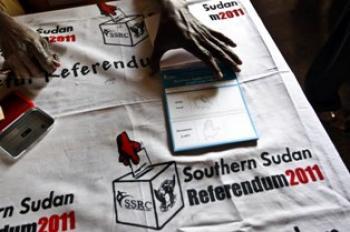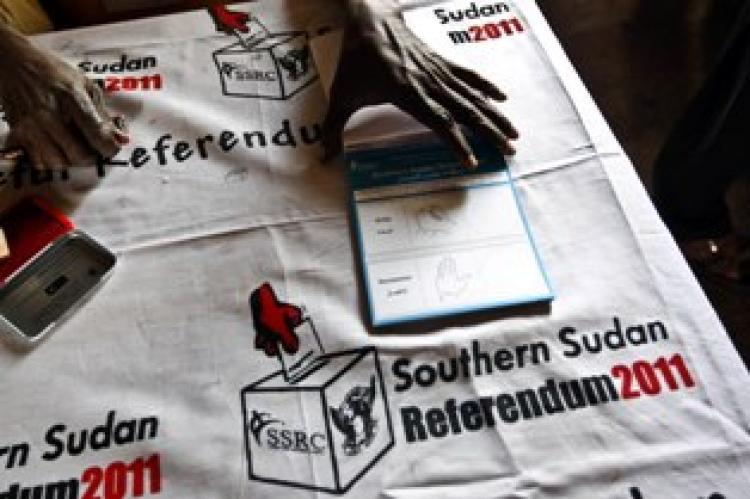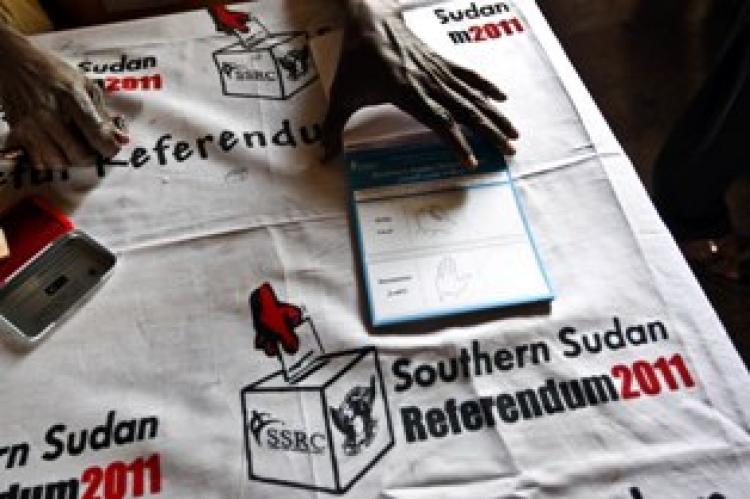Vote to Split Sudan Begins
Southern Sudanese cast their ballots in the first day of voting in the historical referendum, which is expected to split Africa’s biggest nation in two.

An electoral official holds a block of ballot papers during voting preparations in Khartoum on Jan. 9, 2011. Khaled Deskouki/Getty Images
|Updated:






